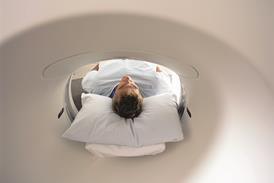A song and dance from Deacon as the McPlan leaves England reeling
And a happy new year to you, too. Now that We are all agreed that the new millennium has commenced, let's start on a suitably apocalyptic note. Let's look at Scotland's newly published version of the NHS plan, a 96-page glossy entitled The NHS Plan for Scotland.
You need to be a subscriber to read more

Subscribe for unlimited access
With a HSJ subscription you’ll unlock:
- All HSJ news by sector, topic & region
- Breaking News announcements
- App for mobile and offline reading
- Comment and Daily Insights newsletters
- Regional roundup newsletters
- Unrestricted access to ‘Ask HSJ’ - AI assistant - AI assistant
- 10 expert briefings every fortnight (Premium only)
Already a subscriber? Sign into your account here



















